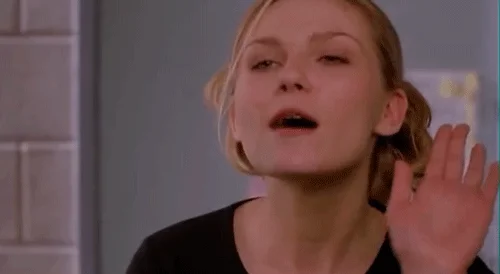I’ve seen people who genuinely hate to say what they’re saying. They don’t look like that at all.
I’m seeing a professor who’s outing herself for being a really poor mentor and teacher.
“My students just don’t do well.” Well, there might be something you could do about that.
If I were concerned about racial disparities in preparedness, I’d be plotting some extra resourcing to correct it, not lamenting the students. If you’re looking at the results of systemic inequality, then advocate.

“I hate to say this, but…” is code for, “I know civilized society isn’t going to like what I’m about to say.”
We’re using words like failing and under-performing, but we really don’t know that is the case. She described them as “lower”, and “jumbled.” My own experience taught me there is a lot of bullshit conformity involved in success with some professors. I would go so far as call it boot-licking in some cases. Their examinations were so subjectively graded that they could accept and reject people like petty tyrants.
The racism here really becomes evident, to me with this line in particular:
You know, we get some really good ones but there also usually are some of them that are just plain at the bottom.
You know what she means when she says “the good ones.” I have a feeling her estimation of these students has much less to do with actual performance and more to do with conformity and submissiveness to the professor’s ego.
Yeah that “jumbled” was a big indicator that the only reason that people were performing badly was her own (racist) subjective analysis rather than on any objective criteria that she could articulate. At the very least it seems to me that she was imposing her own cultural values for what constitutes a good argument upon people who probably have a very different values in that respect. It isn’t crazy for her to do so. Her values probably reflect what tends to be effective in the US court system. But she needed to make this explicit and to acknowledge that different backgrounds would bring different strengths and weaknesses to any given assignment.
It seems to me very important for lawyers to know this. If a kid learns that the best way to win an argument is to try to look physically intimidating, then this will likely be his strategy in arguing that he innocent of a crime – which is likely to be a very ineffective strategy in the cultural context of the courtroom. If someone learns that the best way to win an argument is to verbally dance around and try to confuse their interlocutor rather, they are going to have a hard time trying to convince a third person jury. If a lawyer, especially a teacher, is unable to see this, they are going to do a bad job.
As I read that comment, @DukeTrout was promoting the idea that if a specific group of students is doing poorly in your class, perhaps it would behoove you to evaluate why your teaching method is not reaching that particular group. Disregarding it as “those people just aren’t up to our standard” is lazy and wrong, even before you add in the racial component. And you really must add in the racial component.
Like when she said “Sometimes we get some good ones?” Yeah, that was the tell in my book.
Same here. “The good ones”, AKA the some of my best friends who are Black.

See also; “A ‘Credit’ to Their Race.”
With the caveat that my experience is at another law school whose ranking has been within 1-3 places of Georgetown’s (above and below, depending on the year) for quite some time, I can offer some anecdotal support for this assumption. I was a TA for my legal writing class. My job involved, among other things, grading citation structure and format in exercise memos and briefs drafted for the class. I can confirm that there are absolutely people being admitted to at least some top law schools who are not well prepared to succeed–people who did not learn basic English sentence and paragraph structure in their high school or college classes. I have no idea how those people got through those classes, much less into a top law school.
The flip side to this is that it is also rare for there to be a failing grade at higher-end law schools–classes are all graded on a fairly strict curve, with the bottom of the curve being somewhere around a 2.3 to 2.5 GPA. Students have to do something truly egregious to merit being kicked off the bottom of the curve, so “success” may consist of scraping by. The result is that there are a lot of law school graduates who have never learned basic English sentence and paragraph structure. The bar passage rate is about 80% most places, there are–I can unhappily confirm from ten years of practice–a lot of practicing lawyers who have never learned basic English sentence and paragraph structure.
Some other nuances: all the papers were graded blind–students were not allowed to put their names on any papers (including exams) prepared for any classes, only their student ID numbers–the goal being to avoid even the possibility of unconscious bias. For the vast majority of classes on substantive legal topics, the only paper the professor ever saw from a given student was the final exam, which counted for 100% of the grade. I don’t know for certain all this is also the case at Georgetown, though I suspect it is–legal education is largely very set in its ways.
Even so, a negotiations class–like the one taught by the professor here–is one of the rare instances in which law students are likely to be graded on their performance during class, in this case a series of set-piece negotiations over the course of the term. This is a class in which it is far easier for an individual professor’s biases to creep into grading than in most law school classes, if those classes are administered in the usual manner.
(I hope this is obvious, but I say none of this to defend this professor or her comments–just to note that the problem of poorly prepared students getting into top schools is a real one.)
I’d say you are taking my point out of context.
In this professor’s class, given the bias the professor exhibits in this video, it’s an unsupported assumption that the students she is complaining about are actually failing to learn the material vs not receiving the instruction they need or even that their performance is any poorer than the other students in the class.
girls in STEM
Wasn’t that a Duran Duran song?
Now that earworm has a hold on me. Thanks.
and well spoken or articulate.
Now Weird Al needs to do an 80s revival album, and include this as a cover.
Now that earworm has a hold on me. Thanks.
You’re welcome! Probably no better or worse than whichever bit of corporatized gunk was clogging up your ears before. ![]()
